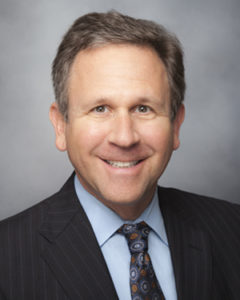Nolan Chang, MD, shares ways Kaiser Permanente is using AI to better the patient experience and reduce physician burnout.
Richard S. Isaacs, MD, discusses how the pandemic transformed care delivery

In a recent interview with Medscape’s “Change Makers” program, The Permanente Federation’s co-CEO Richard S. Isaacs, MD, FACS, said the COVID-19 pandemic accelerated innovations in health care delivery and “has really transformed the way that we connect with patients.”
Even with the convenience provided by the rapid shift to video, telephone, e-visits, secure email, and other telehealth services during the pandemic, Dr. Isaacs noted that patients also want more personalized care. “It’s really about having the right physician available at the right time and the right place to provide that care,” he said. Dr. Isaacs also serves as CEO and executive director of The Permanente Medical Group in Northern California and president and CEO of the Mid-Atlantic Permanente Medical Group.
Dr. Isaacs said that by engaging the right physician to address a particular health issue, fewer steps are needed per diagnosis, eliminating redundant appointments and freeing up physician capacity to address other patients and their needs. Eliminating redundancy is particularly important as more patients return for care after nearly 3 years of missed appointments and screenings.
“COVID-19 has really created delays in care, delays in screening, so I hate to say it, but there’s a queue, there’s a backlog.” To address that backlog, he said, “we’re working extra.”
Related story: “Richard Isaacs, MD, writes that pandemic underscored benefits of value-based care”
To make accessing care more convenient for patients, Kaiser Permanente introduced Get Care Now, a new service that provides most Kaiser Permanente members with quick, 24/7 access to care how and when they want it. Get Care Now options include secure message or self-care for common health matters, on-demand video or phone visit with a physician for urgent care, or online chat with an advice nurse. The services are available to members from the convenience of their smartphone or other devices.
“There’s the patient convenience component, and there’s also the care delivery component,” Dr. Isaacs said. “For example, with telecritical care, we have 2 hubs here in Northern California where we have critical care pulmonologists monitoring all of our ICU (intensive care unit) patients 24/7, which is amazing. You’re moving expertise, not human bodies.”
Another example of technology that provides the medical expertise when and where patients need it is telestroke care.
“If someone shows up in any one of our 21 emergency rooms in Northern California,” Dr. Isaacs said, “we’re able to provide instant expertise from a neurologist who’s central, who can dictate the thrombolytic treatment in real time.”
To view the entire interview, visit the Medscape site.
Medical excellence: Read more about Permanente physician leadership


